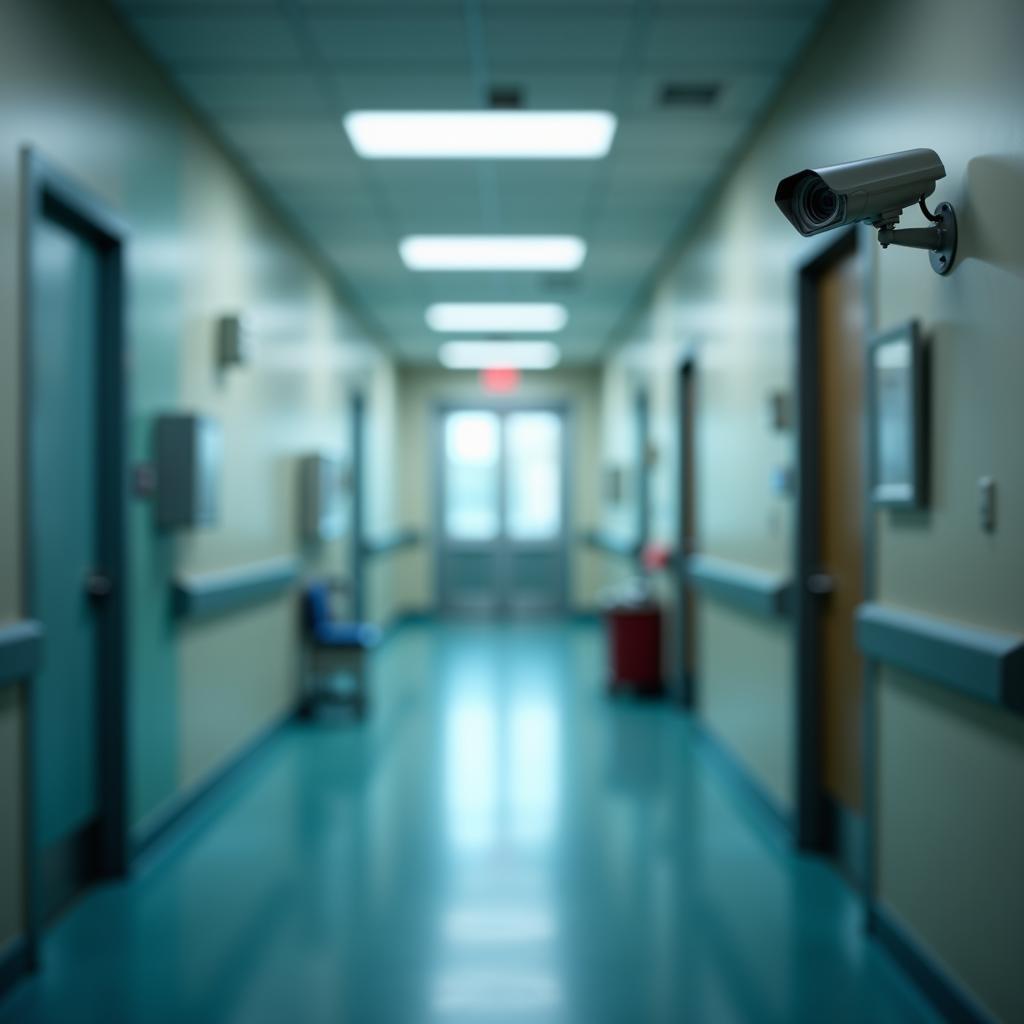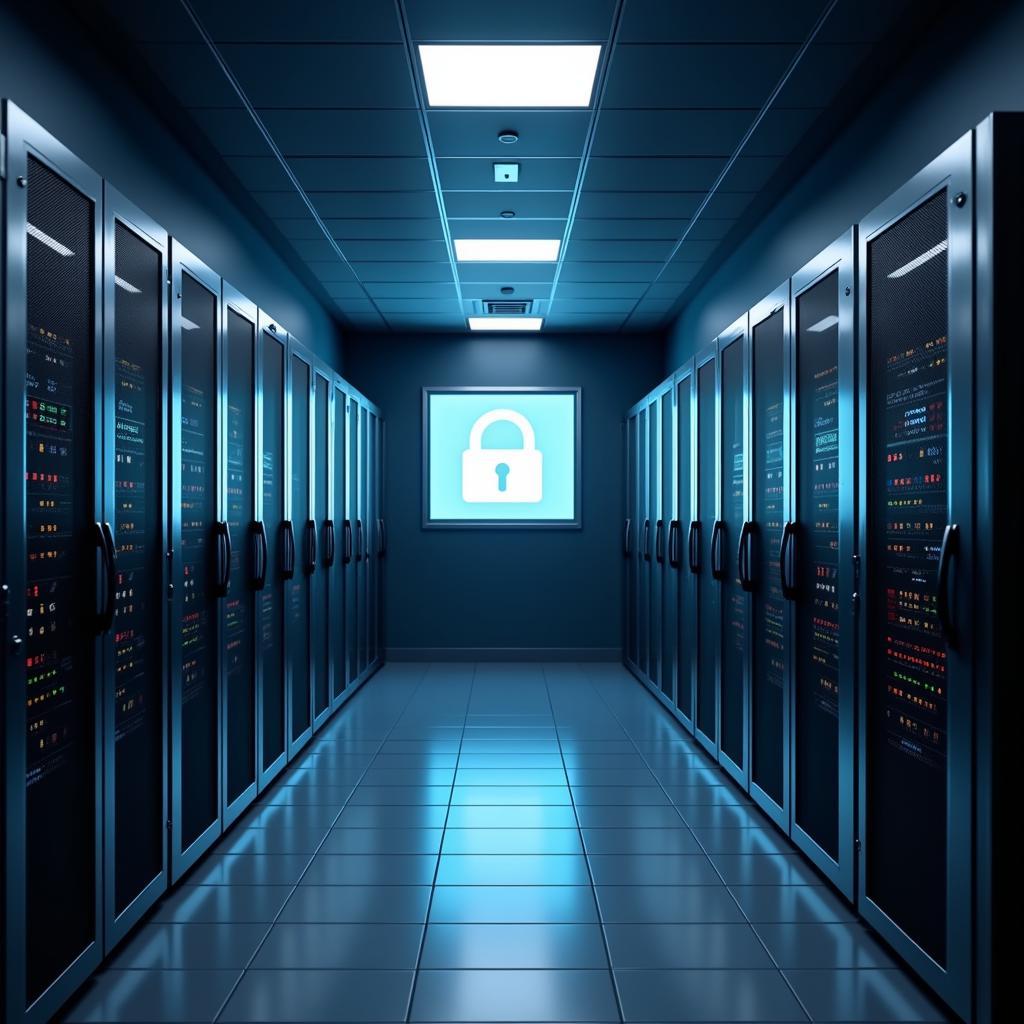A comprehensive Hospital Video Surveillance Policy is crucial for maintaining a secure environment while respecting patient and staff privacy. This policy outlines the guidelines and procedures for the ethical and legal use of video surveillance within San Jose Hospital.
The Importance of a Well-Defined Hospital Video Surveillance Policy
A robust video surveillance policy protects patients, staff, and visitors while safeguarding sensitive information. It addresses concerns regarding privacy and ensures compliance with relevant regulations. A clear policy fosters transparency and builds trust within the hospital community. It also helps to deter criminal activity and provides valuable evidence in investigations.
Balancing Security and Privacy in Hospital Video Surveillance
Striking a balance between security and privacy is paramount. While video surveillance is essential for safety, it must be implemented responsibly. The policy should clearly define the purpose of surveillance, the areas being monitored, and who has access to the recordings. Transparency is key to ensuring everyone understands how and why surveillance is used.
 Hospital Video Surveillance Respecting Patient Privacy
Hospital Video Surveillance Respecting Patient Privacy
Key Components of an Effective Hospital Video Surveillance Policy
An effective policy should address several key aspects, including:
- Purpose: Clearly define the reasons for using video surveillance (e.g., security, deterring theft, monitoring patient safety).
- Scope: Specify the areas under surveillance, including public spaces, corridors, entrances, and parking lots. Sensitive areas like patient rooms and restrooms should be excluded unless legally mandated.
- Data Retention: Establish how long recordings are stored and the process for deleting them. Retention policies must align with legal requirements.
- Access Control: Limit access to recordings to authorized personnel, such as security staff and designated hospital administrators. Strict protocols for accessing and handling recorded footage are necessary.
- Signage: Prominent signage should be displayed in monitored areas, informing individuals that they are being recorded. This promotes transparency and respects individual rights.
- Training: All staff involved in operating or managing the surveillance system must undergo comprehensive training on the policy and relevant privacy regulations.
Legal and Ethical Considerations for Hospital Video Surveillance
Hospitals must adhere to all applicable federal and state laws regarding video surveillance, including HIPAA regulations. The policy should address data security measures to prevent unauthorized access to sensitive information. Ethical considerations, such as patient dignity and confidentiality, must be prioritized.
“A well-crafted hospital video surveillance policy must be a living document, regularly reviewed and updated to reflect changes in technology, regulations, and best practices,” says Dr. Amelia Carter, Chief Privacy Officer at San Jose Hospital.
Addressing Common Concerns about Hospital Video Surveillance
What about patient privacy in sensitive areas?
Patient privacy is paramount. Video surveillance is generally prohibited in areas where patients have a reasonable expectation of privacy, such as restrooms and examination rooms, unless legally mandated. The policy should explicitly outline these restrictions.
Who has access to the recordings?
Access to recorded footage is strictly limited to authorized personnel, such as security staff and designated administrators. Strict access control measures are in place to prevent unauthorized viewing.
How long are recordings kept?
The policy establishes a data retention period for recordings, adhering to legal requirements and best practices. Recordings are securely deleted after the designated retention period.
 Hospital Video Surveillance Access Control
Hospital Video Surveillance Access Control
“Maintaining transparency with patients and staff about the hospital’s video surveillance policy is essential for fostering trust and cooperation,” advises Dr. David Miller, Security Director at San Jose Hospital.
Conclusion
A robust hospital video surveillance policy is essential for creating a safe and secure environment for everyone. By balancing security needs with privacy concerns, San Jose Hospital is committed to upholding the highest standards of ethical and legal practice in video surveillance. Our policy ensures transparency, accountability, and the protection of sensitive information.
FAQs
- What is the purpose of video surveillance at San Jose Hospital?
- Are all areas of the hospital under surveillance?
- Who can access the video recordings?
- How long are the recordings kept?
- What measures are in place to protect patient privacy?
- What if I have concerns about the video surveillance policy?
- How often is the policy reviewed and updated?
For any assistance or inquiries, please contact us at Phone: 02437655121, Email: [email protected] or visit us at 298 Cau Dien Street, Minh Khai, Bac Tu Liem, Hanoi, Vietnam. Our customer service team is available 24/7.